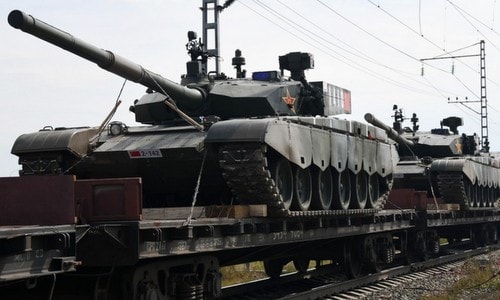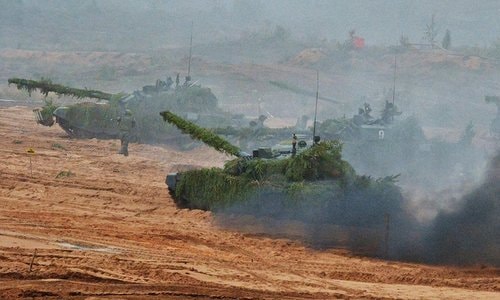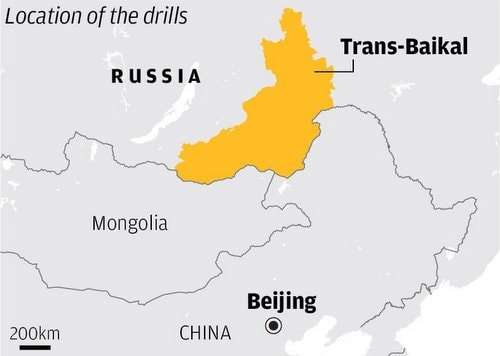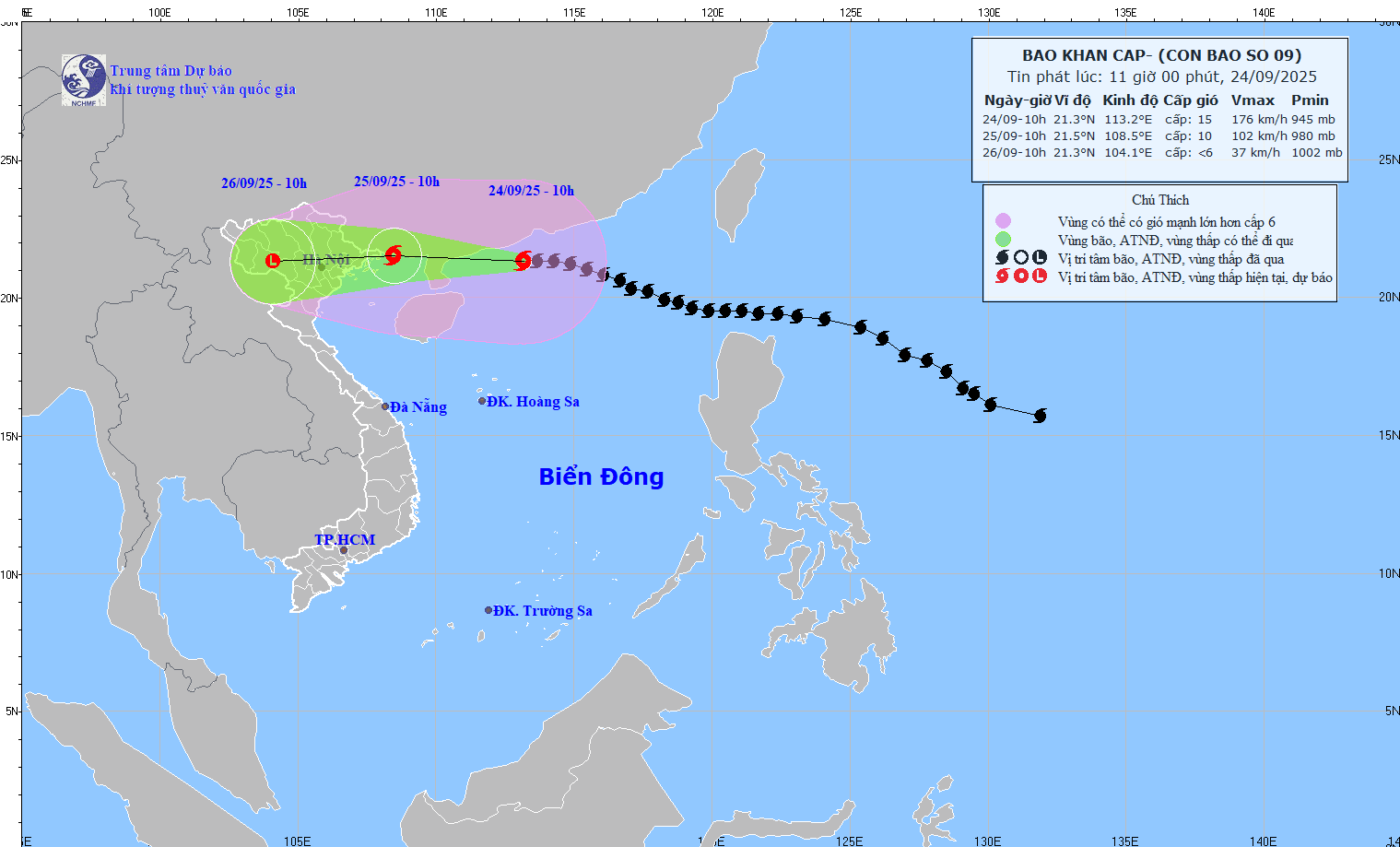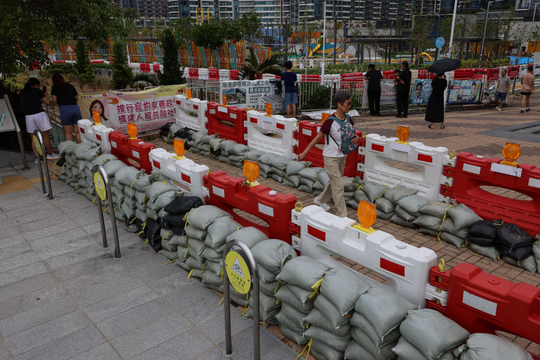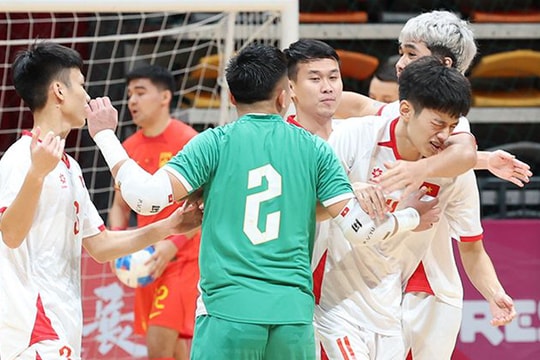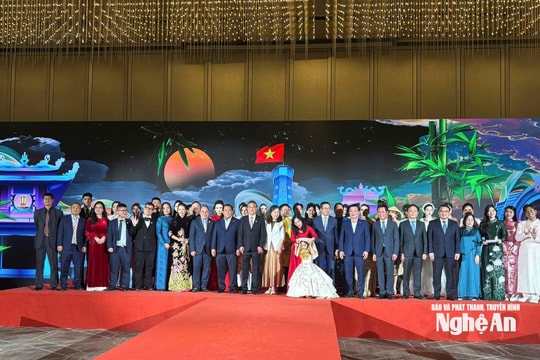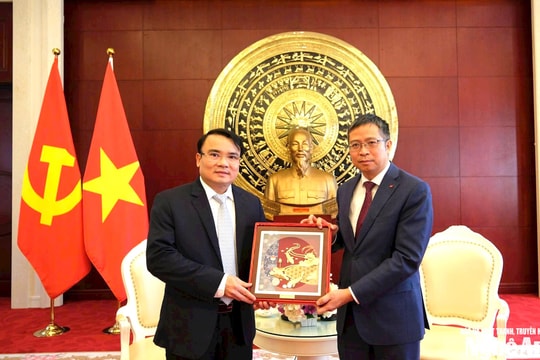China's calculations when participating in Russia's largest military exercise in history
Learning from Russia's combat experience and deterring the US could be the reason why the Chinese military appeared at Vostok-2018.
|
Chinese tanks were brought to Russia to participate in military exercises. Photo:SCMP. |
China's Ministry of Defense announced last week that it would send 3,200 troops and 30 aircraft to participate in the Vostok-2018 exercise, the largest in Russia's history, taking place from September 11 to 15 in Siberia and the Far East. Experts say Beijing will gain many benefits from participating in this exercise, according toSCMP.
During the Cold War, China and the Soviet Union repeatedly expressed suspicion of each other, culminating in a brief border conflict in 1969. It was not until 2005 that Russia began inviting China to participate in joint military exercises, but only at the tactical level and on a small scale.
Military expert Todd South said that participating in Russia's largest military exercise in history would significantly increase China's position, putting it on par with Moscow's closest military allies.
With 3,200 troops and 900 pieces of equipment, this is China's largest military deployment on Russian territory. The Chinese military will participate in many events at Vostok-2018 as a blue force, rather than just supporting allies.
Song Zhongping, a Chinese military expert, said the exercise was an opportunity for Chinese soldiers to learn from Russia's combat experience, including tactics and strategies drawn from the wars in Syria and Chechnya.
"China's role in Vostok-2018 is very limited. However, this is a rare opportunity to learn practical experience, especially when China has not participated in a war in decades," Song said.
|
Russian tanks in the large-scale Zapad-2017 exercise. Photo:Sputnik. |
A Chinese military source said Russia has incorporated its experience from the war in Syria into the curriculum of military academies. This information will be shared with Chinese forces. "This is the first time Russia has shared combat knowledge with a foreign military. China is the only country without real combat experience among the major powers and is looking forward to this opportunity," the source said.
China considers not participating in any war for too long a "peacetime disease" that can reduce the combat readiness of its officers and soldiers, while its combat theories risk being far from reality because they have not been tested on the battlefield.
According to military expert Zhou Chenming, Beijing's sending of forces to participate in Vostok-2018 is also aimed at showing political support for Russian President Vladimir Putin in the face of diplomatic pressure from the West.
"Putin wants to show off his military strength because he is worried that the European Union (EU)'s implementation of the Schengen military plan with NATO will push Russia out of the continent. The administration of US President Donald Trump also lists Beijing and Moscow as strategic rivals," Zhou commented.
Jonathan Holslag, professor of international politics at the University of Brussels in Belgium, said that both Russia and China wanted to show off their strength in this exercise to "send a message of deterrence to the West".
|
Location of the Vostok-2018 exercise. Graphics:SCMP. |
"Although the two sides still lack mutual trust, Russia has no other choice but to join hands with China, in the context of tense Moscow-Washington relations, financial support from Beijing is essential to minimize the impact of Western sanctions," Holslag assessed.
Colin Koh, a scholar from the S. Rajaratnam School of International Studies, Singapore, said the presence of Chinese troops at Russia's largest military exercise may evoke memories of the Cold War, but this cannot stop the US and its allies from implementing plans in the region.
"Relevant parties will have to be careful to avoid causing provocations that lead to a direct armed confrontation, as increased military activities could lead to misunderstandings and unintentionally trigger a military conflict," Koh stressed.

